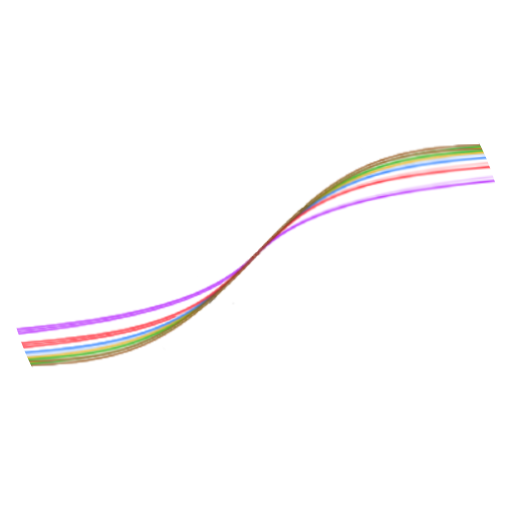- 5 Posts
- 16 Comments

 3·6 months ago
3·6 months agoThanks for the answer! I hadn’t thought about asking for recipes based on the specific ingredients you have left.

 2·6 months ago
2·6 months agoMore importantly, what was the recipe and was it any good?

 1·7 months ago
1·7 months agoThanks for your answer. I think to be clear, what I’m looking for is a kind of masked fine-tuning. You see, I want to “steer” a particular output instead of providing complete examples, which are costly to create.
The steering would be something like this:
- I have an LLM generate a sequence.
- I find exactly where the LLM goes “off track” and correct it there (for only maybe 10-20 tokens instead of correcting the rest of the generation manually).
- The LLM continues “on track” until it goes off track again.
What I would like to do is train the model based on these corrections I give it, where many corrections might be part of the same overall generation. Conceptually I think each correction must have some training value. I don’t know much about masking, but what I mean here is that I don’t want it to train on a few tens or hundreds of (incomplete) samples but rather thousands of (masked) “steers” that correct the course of the rest of the sample’s generated text.

 11·7 months ago
11·7 months agoSorry, I really don’t care to continue talking about the difference between supervised and unsupervised learning. It’s a pattern used to describe how you are doing ML. It’s not a property of a dataset (you wouldn’t call Dataset A “unsupervised”). Read the Wikipedia articles for more details.

 1·7 months ago
1·7 months agoNo, in that case there’s no labelling required. That would be unsupervised learning.
https://en.wikipedia.org/wiki/Unsupervised_learning
Conceptually, unsupervised learning divides into the aspects of data, training, algorithm, and downstream applications. Typically, the dataset is harvested cheaply “in the wild”, such as massive text corpus obtained by web crawling, with only minor filtering (such as Common Crawl). This compares favorably to supervised learning, where the dataset (such as the ImageNet1000) is typically constructed manually, which is much more expensive.

 1·7 months ago
1·7 months agoGround truth labels are just prescriptive labels that we recognize as being true. The main thing that distinguishes unsupervised from supervised is that in unsupervised learning, what is “good” is learned from the unstructured data itself. In supervised learning, what is “good” is learned from some external input, like “good” human-provided examples.

 1·7 months ago
1·7 months agoNo, it’s unsupervised. In pre-training, the text data isn’t structured at all. It’s books, documents, online sources, all put together.
Supervised learning uses data with “ground truth” labels.

 1·7 months ago
1·7 months agoThis pre-training was done by Meta. It’s what Llama-3.1-405B is (in contrast to Llama-3.1-405B-Instruct). https://huggingface.co/meta-llama/Llama-3.1-405B
Training Data
Overview: Llama 3.1 was pretrained on ~15 trillion tokens of data from publicly available sources. The fine-tuning data includes publicly available instruction datasets, as well as over 25M synthetically generated examples.

 1·7 months ago
1·7 months agoUnsupervised training happens during the pre-training phase when you dump all kinds of quality documents and it learns the relationship between tokens

 17·7 months ago
17·7 months agoCurious, how do you evaluate the performance without breaking the law?

 1·7 months ago
1·7 months agoThe article you linked to uses SFT (supervised fine tuning, a specific training technique) as its alignment strategy. There are other ways to fine-tune a model.
I guess I’m wondering if you can train on these partial responses without needing the full rest of the output, without the stop token, or if you need full examples as the article hints to.

 1·7 months ago
1·7 months agoCan SFT be used on partial generations? What I mean by a “steer” is a correction to only a portion, and not even the end, of model output.
For example, a “bad” partial output might be:
<assistant> Here are four examples: 1. High-quality example 1 2. Low-quality example 2and the “steer” might be:
<assistant> Here are four examples: 1. High-quality example 1 2. High-quality example 2but the full response will eventually be:
<assistant> Here are four examples: 1. High-quality example 1 2. High-quality example 2 3. High-quality example 3 4. High-quality example 4The corrections don’t include the full output.

 3·7 months ago
3·7 months agoYou are right. Their description of “SOTA Open Source TTS” caused me to assume it was open source, but it’s clear that
This codebase and all models are released under CC-BY-NC-SA-4.0 License.
So, it’s “source available” and not released under a permissive licence.

 2·7 months ago
2·7 months agoThank you so much, that exactly answers my question with the official response (that guy works at Meta) that confirms it’s the same base model!
I was concerned primarily because in the release notes it strangely didn’t mention it anywhere, and I thought it would have been important enough to mention.

 4·7 months ago
4·7 months agoI followed their instructions here: https://speech.fish.audio/
I am using the locally-run API server to do inference: https://speech.fish.audio/inference/#http-api-inference
I don’t know about other ways. To be clear, this is not (necessarily) an LLM, it’s just for speech synthesis, so you don’t run it on ollama. That said I think it does technically use Llama under the hood since there are two models, one for encoding text and the other for decoding to audio. Honestly the paper is terrible but it explains the architecture somewhat: https://arxiv.org/pdf/2411.01156

Also note that there’s OnionShare, too. You don’t need a TLS certificate or domain, don’t need to port forward and can run it from home safely, routes over Tor so very hard to know you are even sharing something, well known and open source etc.